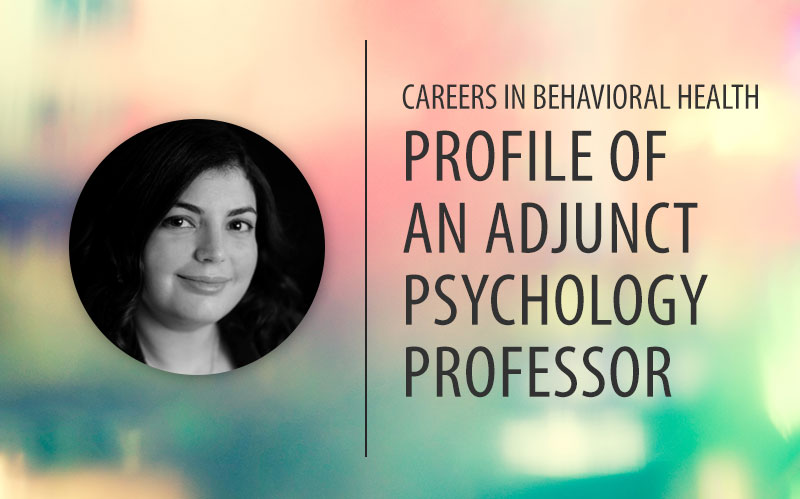Time2Track Blog
Real-Life Resources for Students & Early Career Professionals

Pros & Cons of Online Therapy: Are We Hard-Wired to Connect?
More and more people are seeking mental health services through web-based computer and smartphone applications, with and without the involvement of trained mental health professionals. As current and future clinical psychologists, we must critically explore the advantages and disadvantages that online mediums pose for our therapy practices as they become infused into healthcare.
What are the major upsides and drawbacks to online therapy from the client’s and therapist’s perspectives?

My Experience with Counseling Underprivileged Children
Sometimes the hardest job can have the most amazing rewards.
Living and working in the New Orleans metro area has been an eye-opening experience, especially working as a mental health counseling intern in one of the area’s elementary schools.
New Orleans has a vibrant culture that is woven together with tragedy and music that just draws you in. Coming here as a visitor, you are usually not aware of the negatives such as the long-term effects of Hurricane Katrina and the communities that have been locked in poverty (and the effects that has had on its residents). As a visitor, your focus is usually on the excellent music, the delicious food, and the eccentric characters that make visiting New Orleans so great.

Your Plan for Therapist / Client “Real World” Interactions
Imagine that on that you are at the grocery store on a Saturday morning for a quick stop to get some milk, and you spot one of your clients just a few places in front of you in the checkout line.
What do you do?
Should you wave to them? Walk up and ask if they were able to work things out with their significant other? Remind them of their appointment this Monday (since they missed their last one)? Ignore them and frantically try not to make eye contact?
If this situation is new to you, you may experience some panic.

What’s Stopping Grad Students From Getting Mental Health Treatment?
Graduate students face unique pressures as a part of the typical doctoral experience, including isolation in projects of indeterminate length, disproportionately little pay for excessive amounts of time and effort, and supervisory relationships that can result in the success or failure of a graduate degree.
Graduate students also bear the increased responsibilities of adulthood, such as copious amounts of debt from student loans, providing spousal and/or family support, and the foreknowledge of an uncertain career trajectory following graduation.
Graduate students suffer high rates of mental health issues. A survey of graduate students at the University of California revealed that approximately 50% of graduate students suffer from some form of mental illness [1]. Up to 87% of graduate students report feelings of anxiety, 68% feelings of depression, and up to 19% of cases report suicidal ideation [2].
Even students without clinically significant levels of depression or anxiety experience symptoms that hinder their work and quality of life.

How to Stay Organized as an Aspiring Counselor or Therapist
I want you to think for a minute about all the things you have learned throughout your training experience.
Remember the day that you started your first externship or internship? Do you remember all of the emotions you were feeling, the thoughts running through your head, and that knot in your stomach that wouldn’t go away?
How many times did you ask yourself, “Where do I start?” How many times did you tell your peers, “I just don’t know where to begin”? How many times did a supervisor or professor give you a sly smile and say, “Well, what do you want to do?” leaving you with a perplexed face and even a sense of panic?

You Can Finish Your Dissertation Early – Here’s How
I recently defended my dissertation before going on internship. I set this goal during my 3rd year of graduate school. I really wanted to be 100% focused on internship when I began my rotation, and I wanted to be able to become immersed in as many opportunities as possible, including research and attending extra didactics and seminars.
However, I knew that with my dissertation looming over my head, this would be much more difficult to do and I would be left with no down time at all.
I’ve had a lot of people ask me how I accomplished this, so I thought I’d share some tips. Of course there are always unforeseen roadblocks that complicate the process, and defending prior to internship is not always possible, but here is how I did it…

Complementary & Alternative Medicine in the Therapy Room
As aspiring mental health professionals and clinicians, we are constantly looking for new ways to improve our practice to better serve our clients. As a field, psychology is known for integrating new innovations into existing practices.
It is this receptivity and openness to new methods and practices that have been essential components to maintaining clinical competence within our field.

What is it Like to be an Adjunct Psychology Professor?
This article is part of the series, Careers in Behavioral Health, where we interview professionals in the field about their educational and job experiences.
Madeline E. B. Wesh, PsyD is an adjunct psychology professor, field researcher for psych test revisions, and clinical psychology post-doc. Here are the questions we asked Dr. Wesh.

Are Clinical Psychologists Overworked and Underpaid?
The practice of Clinical Psychology looks deeply at people’s motives, feelings, thoughts and actions in hopes of providing them relief from distress. It is a profession that requires deep empathy for humanity’s struggles to help bring about change. The field is one that requires significant training, education as well as mental and emotional strength.
As clinical psychologists, we work with clients of all ages facing countless challenges. Our clients come from all walks of life and social groups, representing the larger American society.
In providing mental health treatment, we are addressing topics that impact humanity as a whole; including violence, trauma, loss, grief, politics – the list goes on.
The impact of psychotherapy is enormous and touches individuals, families, and society. Despite all of this, we are in a profession that is paid drastically less than other fields with the same level of education.

Mental Illness Stigma: A Therapist’s Perspective
I can’t even count the number of times I’ve watched friends’ and family members’ facial expressions drop and felt a chilling silence upon mentioning various forms of mental illness.
These are open-minded people. They are willing to talk about politics, religion, drugs, and other controversial topics. But they withdraw when the topic of mental illness comes up.
I don’t start these conversations to cause a ruckus. Instead, I want to honestly talk about the impact mental illness has on individuals and society as a whole. Our mental health system is dysfunctional and we need to address it head-on if we hope to change anything. This entails embracing mental health as an acceptable and appropriate subject.
